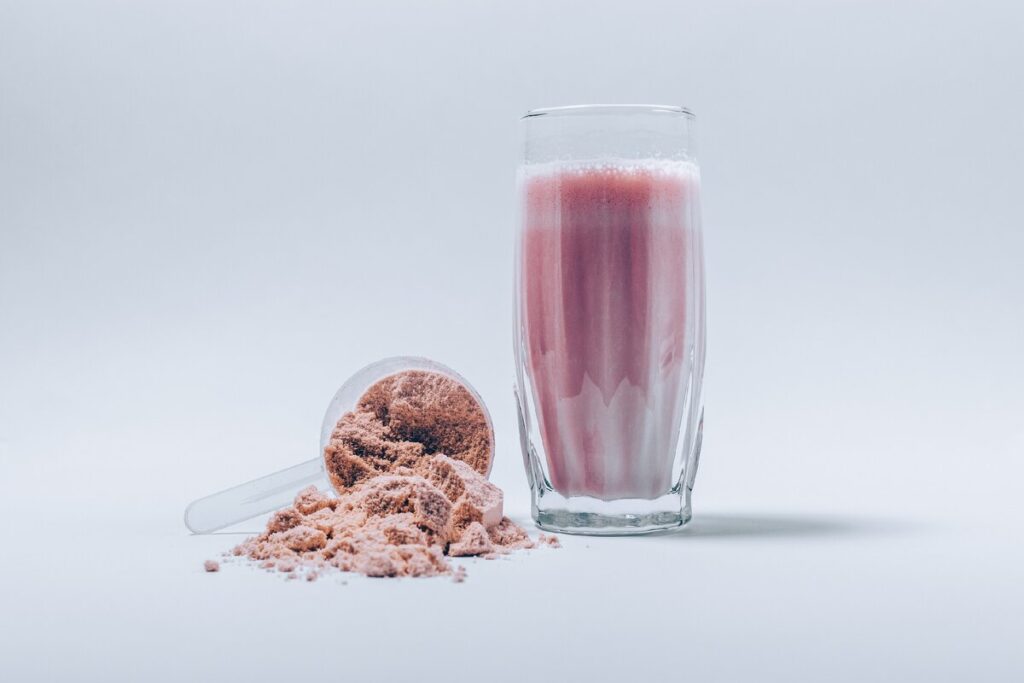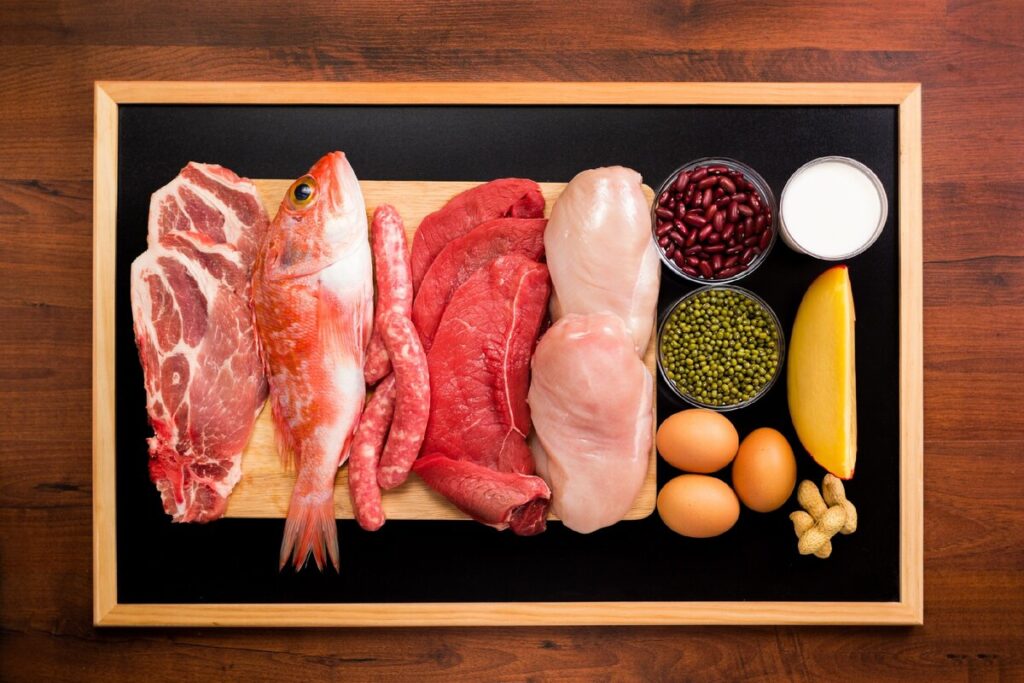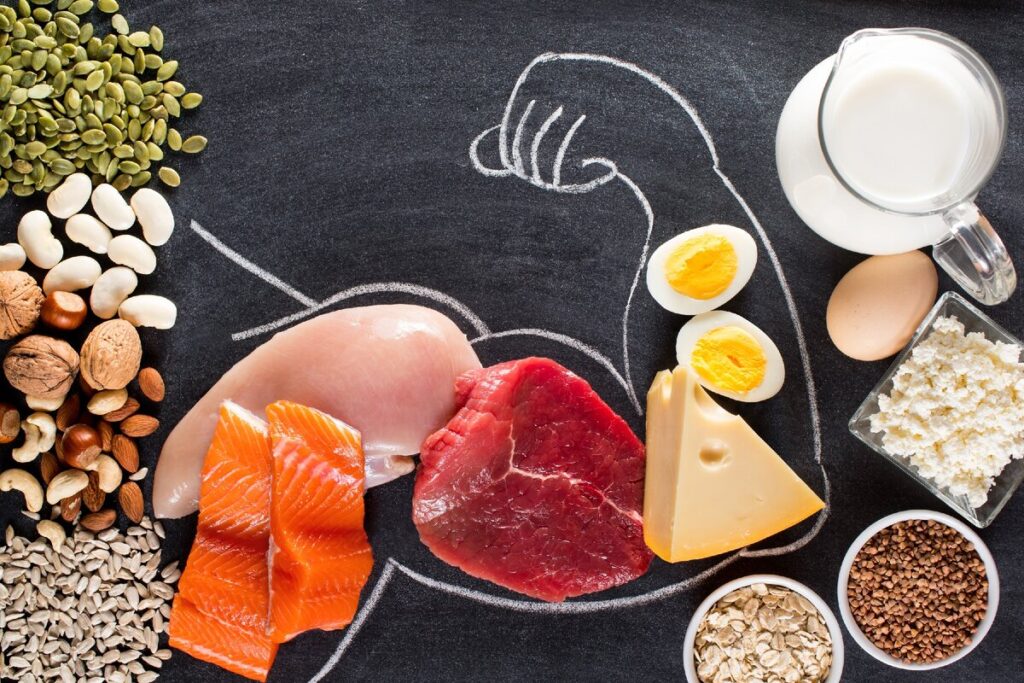Can you build muscles without consuming meat?
We acknowledge the importance of animal protein for muscle formation, but many athletes prefer using protein during workouts. Let’s discuss the topic of muscle development: is it possible to build muscles by abstaining from animal protein, and how healthy is it?
Meat as a source of amino acids
Athletes have adhered to a meat-based diet since ancient times. In the 6th century BCE, the Greek athlete Milo of Croton followed a similar regimen, killing a bull and consuming its meat on the same day. He triumphed in the Olympics and other games, likened in strength to Hercules. During that era, there was no knowledge of calories and amino acids. Today, athletes use protein for muscle growth, and protein-based supplements assist in physical exertion.
A professional athlete believes that proper nutrition is the key to gaining muscle mass. He claims that protein-rich food is more convenient and accessible. Although he doesn’t oppose protein, he believes it is necessary only for professional athletes.

When is protein necessary?
Protein plays a crucial role in various aspects of health, and its consumption is particularly important in several situations. Let’s consider some circumstances when protein becomes especially necessary:
- Sports and Physical Activity: Protein plays a key role in the recovery and growth of muscles after physical exertion. For athletes and those actively engaged in physical activity, increased protein intake helps maintain muscle mass, promotes tissue recovery, and enhances endurance.
- Muscle Mass Gain: Individuals aiming to gain muscle mass are often advised to increase their protein intake. Protein contains amino acids necessary for protein synthesis in the body, contributing to muscle growth.
- Aging and Health Care: As the body ages, it may lose muscle mass, leading to weakened overall health. High protein intake can help support muscle tissue and prevent its loss.
- Recovery after Injuries and Illnesses: In cases of injuries and illnesses, the body requires additional nutrients for the recovery of damaged tissues. Protein plays a key role in this process, promoting healing and restoration.
Protein's Multifaceted Benefits: From Recovery to Aesthetics, Exploring Its Role in Health and Well-being.
- Maintaining Skin, Hair, and Nails Health: Protein is essential for maintaining the health of the skin, hair, and nails. It serves as the primary building block for these tissues, contributing to their strengthening and improvement.
- Weight Control and Weight Loss: Protein consumption can help control hunger and preserve muscle mass during the weight loss process. This is particularly important to avoid muscle loss along with fat.
- Pregnancy and Breastfeeding: During pregnancy and breastfeeding, women often need additional protein as it plays a crucial role in fetal development and supports the mother’s health.
- Growth and Development in Children and Adolescents: Children and adolescents in the growth and development stage also require an adequate amount of protein to maintain optimal health and develop muscle mass.
Understanding Protein Needs: Tailoring Intake for Athletes, Goal-Setters, and the Aging Population.
It’s important to note that individual protein needs may vary depending on physical activity, age, gender, and overall health. Before making significant changes to one’s diet, consulting with a doctor or dietitian is recommended.
To whom is protein recommended:

- Professional athletes participating in competitions. • Those who find it challenging to reach their daily protein goals. • Elderly individuals struggling to maintain muscle mass.
Can a high-protein diet be harmful?
A high-protein diet is generally safe, but caution is needed with protein supplements like bars and balls. They may contain high amounts of carbohydrates and calories, leading to digestive issues.

What can replace protein?
When it comes to obtaining protein, there are numerous alternatives, especially for those who prefer diverse food sources. Let’s explore various options that can serve as protein substitutes:
- Fish: Fish is an excellent source of high-quality protein and beneficial Omega-3 fatty acids. Fish varieties like salmon, tuna, and cod are particularly rich in protein.
- Eggs: Eggs contain all essential amino acids and are an excellent source of protein. They can be prepared in various ways, making them a convenient choice in the diet.
- Plant-based Proteins: Nuts, seeds, beans, lentils, and soy products are excellent sources of plant-based protein. Combining different products allows for obtaining all necessary amino acids.
- Dairy Products: Milk, yogurt, cottage cheese, and cheese contain animal-derived protein. They are also rich in calcium and other nutrients.
- Meat Alternatives: Tofu, seitan, and other soy-based meat alternatives offer a chance to get protein without relying on meat.
Diverse Fuel for Strength: From Grains to Specialized Products.
- Grain Products: Oats, quinoa, buckwheat, and other grain products contain some amount of protein, making them an essential part of a balanced diet.
- Specialized Protein Products: Protein powders and bars, based on plant and animal sources, provide a convenient way to meet protein needs, especially for active individuals.
- Maltodextrin and Creatine: For those seeking additional energy sources and workout support, maltodextrin and creatine can be included in the diet. Maltodextrin provides carbohydrates, while creatine supports energy metabolism in muscles.

It’s crucial to emphasize that dietary diversity contributes to obtaining a full spectrum of necessary nutrients. Research and selecting products considering individual preferences and needs help ensure a balanced and healthy diet. If needed, consulting with a dietitian can assist in developing an optimal eating plan.
Conclusions:
While protein supplements aid in gaining muscle mass and provide essential amino acids, experts recommend adhering to a high-protein diet, especially if you’re not aiming for athletic records.


